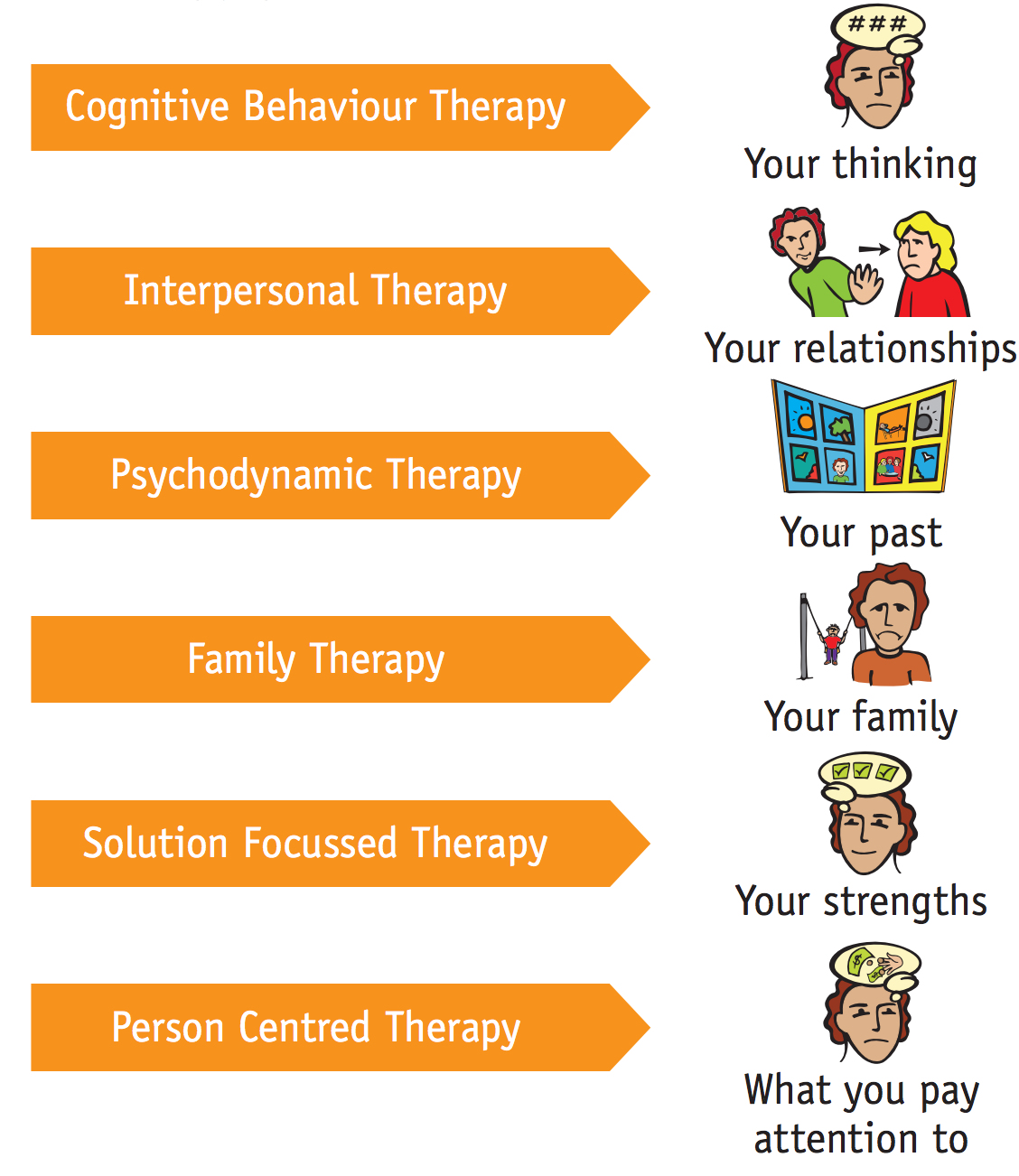A Comprehensive Overview to the Various Kinds Of Coaching and Their Impact
Counseling incorporates a selection of therapeutic strategies, each made to meet distinct mental health needs. From the organized strategies of Cognitive-Behavioral Treatment to the understanding nature of Person-Centered Treatment, these techniques provide distinct paths to individual development. Family members therapy and Dialectical Actions Treatment provide additional structures for recovery, while group therapy cultivates neighborhood support. Recognizing these varied approaches can brighten their extensive effect on individual well-being. What stays to be discovered are the details of each technique.

Understanding Cognitive-Behavioral Therapy (CBT)
Although numerous therapeutic approaches exist, Cognitive-Behavioral Therapy (CBT) stands apart because of its structured, goal-oriented nature. This type of therapy is based on the premise that ideas, feelings, and behaviors are adjoined, and by transforming adverse idea patterns, people can modify their psychological actions and activities. CBT utilizes different techniques, such as cognitive restructuring, which assists customers recognize and challenge altered beliefs. Behavioral activation motivates involvement in pleasurable activities to deal with clinical depression.
Generally, CBT is a temporary therapy, often long lasting in between 12 to 20 sessions, making it easily accessible for those seeking quick results. Its efficiency has actually been well-documented in dealing with anxiousness problems, clinical depression, and various other mental wellness concerns. The therapist's function is to direct clients via workouts and homework jobs, cultivating self-awareness and promoting lasting coping methods. This useful strategy encourages people to take control of their psychological well-being, ultimately leading to improved life satisfaction.
Exploring Person-Centered Therapy
Person-Centered Treatment, created by Carl Rogers, offers a different approach to Cognitive-Behavioral Treatment by emphasizing the customer's subjective experience. This therapeutic design focuses on the individual's viewpoint, fostering a setting of empathy, unconditional favorable regard, and credibility. By permitting customers to explore their feelings and ideas without judgment, specialists help with individual development and self-discovery.
The core tenet of Person-Centered Treatment is the belief that individuals possess the fundamental ability for self-healing and individual growth. In this setting, the therapist works as a helpful overview rather than a regulation authority, urging customers to organize their very own journey. This method is specifically effective for those coming to grips with concerns such as low self-esteem, stress and anxiety, or clinical depression, as it empowers them to face and comprehend their feelings. Inevitably, Person-Centered Therapy grows a solid therapeutic alliance, promoting depend on and visibility important for purposeful modification.
The Duty of Household Treatment in Healing
Family members therapy functions as an important part in the healing process for people and their relationships. This healing approach concentrates on boosting communication, resolving disputes, and cultivating deeper links amongst member of the family. By resolving dysfunctional characteristics, family members therapy motivates each participant to express their thoughts and sensations in a secure setting, advertising understanding and empathy.

The effect click here of family members treatment prolongs beyond the sessions, as boosted relationships can bring about improved psychological well-being for all entailed. Overall, household therapy plays a crucial duty in healing by cultivating unity, resilience, and shared assistance among member of the family, inevitably directing them towards a much healthier, much more meeting life together.
Unloading Dialectical Behavior Modification (DBT)
Structure on the structure of therapeutic techniques that boost emotional wellness, Dialectical Behavior modification (DBT) supplies a structured framework for people fighting with intense emotions and behavior obstacles. Created by Marsha Linehan, DBT incorporates cognitive-behavioral techniques with mindfulness methods, intending to aid customers take care of frustrating feelings and improve interpersonal effectiveness.
The treatment is especially beneficial for those detected with Borderline Personality Condition but is also appropriate to a series of other mental wellness issues. relationship therapy. DBT contains private therapy sessions and abilities training groups, concentrating on 4 essential capability: mindfulness, distress tolerance, emotion regulation, and social efficiency
The Benefits of Team Counselling Procedure
While individual treatment offers valuable insights, team counseling sessions supply distinct advantages that can considerably enhance the therapeutic experience. One important benefit is the sense of area that arises amongst participants. Individuals commonly locate convenience in sharing their experiences with others dealing with similar difficulties, cultivating a helpful setting that lowers sensations of isolation.
Furthermore, group sessions urge varied point of views, allowing individuals to gain from each other's coping strategies and understandings. This cumulative knowledge can lead to enhanced analytical capacities and a more comprehensive understanding of personal issues.
Additionally, team therapy often promotes responsibility, as members motivate one an additional to pursue their objectives and comply with their commitments. Finally, the cost-effectiveness of group therapy makes it an easily accessible choice for several people looking for assistance. On the whole, the joint nature of team therapy sessions can greatly enrich the therapeutic journey.
Frequently Asked Questions
What Qualifications Do Specialists Required to Exercise Counseling?
Therapists usually need a relevant degree in psychology or therapy, in addition to monitored clinical experience. Additionally, they need to get appropriate licensure or accreditation to exercise legitimately, guaranteeing adherence to expert criteria and moral guidelines.
How Do I Select the Right Kind Of Treatment for Me?
Choosing the right kind of therapy entails assessing individual demands, discovering various approaches, thinking about therapist specialties, and looking for suggestions. Comprehending specific objectives and choices can substantially boost the performance and complete satisfaction of the restorative experience.

Are Online Therapy Sessions as Effective as In-Person Ones?
The effectiveness of on-line counseling sessions contrasted to in-person ones commonly depends upon specific choices and conditions. Research indicates that both methods can yield positive outcomes, though some might find greater comfort in face-to-face interactions.
For How Long Does Counseling Generally Last?

What Should I Anticipate During My First Therapy Session?
Throughout the very first counseling session, clients can anticipate an introduction, discussion of their problems, facility of goals, and an overview of the therapy procedure - adhd counselling. This initial conference aims to build relationship and assurance comfort